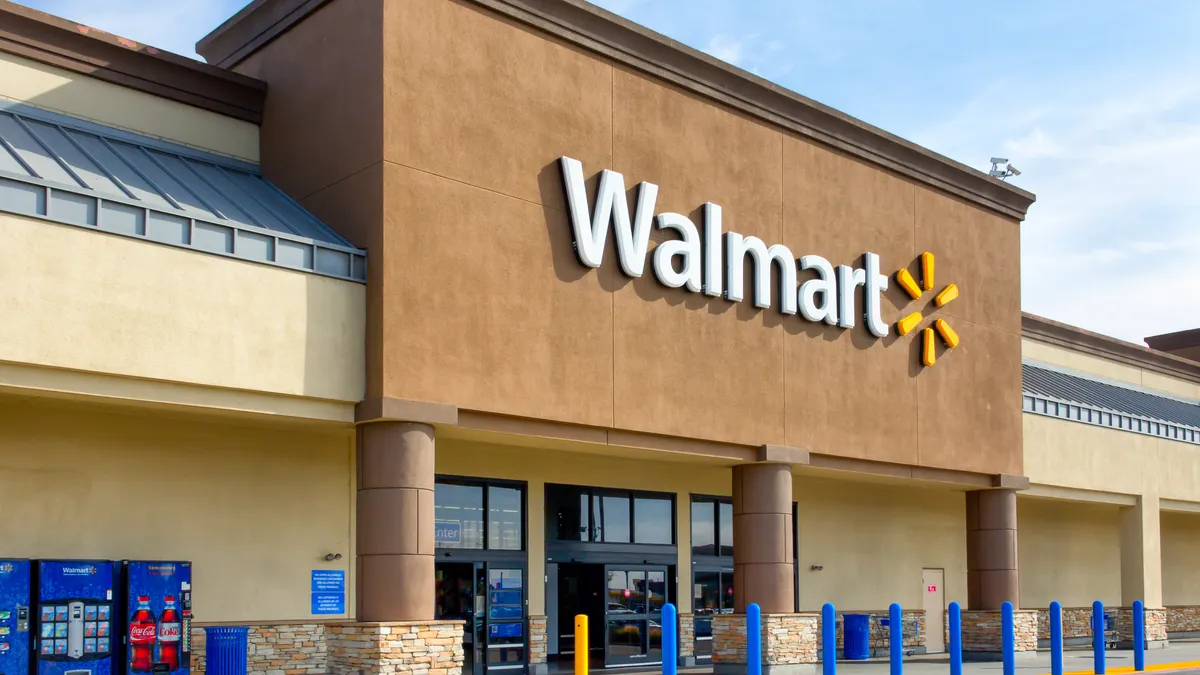Dive Brief:
-
Wal-Mart Stores Inc. and federal prosecutors continue to have trouble coming to terms over a settlement of the retailer's long-running foreign bribery scandal, at least in part because acknowledging wrongdoing could endanger its ability to participate in federal programs, The Wall Street Journal reports. A request for comment from Retail Dive was not immediately returned.
-
For five years, the U.S. Justice Department and Securities and Exchange Commission have been investigating Wal-Mart under the Foreign Corrupt Practices Act, which prohibits and monitors improper international dealings like bribery. Talks fell apart last fall as the Obama administration prepared to wind down, and government officials renewed their investigation, according to earlier press reports.
-
Organizations that plead guilty to federal crimes can be blocked from winning government contracts, meaning Wal-Mart — the country’s largest grocer — could lose its access to the Supplemental Nutrition Assistance Program, commonly known as food stamps, which accounted for some $13 billion in sales last year.
Dive Insight:
In some areas of the world, bribing officials is an accepted practice to obtain building permits and licensing, and to close business deals. It’s not exactly copacetic from the perspective of the U.S. government, however, as Wal-Mart Stores Inc. and its Mexican division, Walmart de México, have found. U.S. investigators looking into Wal-Mart’s dealings there eventually expanded their probe elsewhere, including Brazil, India and China.
Still, there are grey areas. In some countries, "gifts" are expected during business negotiations. The U.S. Department of Justice has a guide — including case studies — on how to comply with the Foreign Corrupt Practices Act of 1977, which outlaws the kind of activity that has Wal-Mart in so much hot water, while still keeping up with business gift customs.
Wal-Mart's bribery scandal just isn’t going away and has already included investigative press reports (a story originally broken by The New York Times launched the probe), government inquiries on both sides of the border, and criminal court proceedings that have cost the retailer dearly — more than $820 million, sources told the Journal.
But those costs would be compounded mightily if Wal-Mart were to lose its ability to participate in the federal SNAP program. Any major grocer derives a fair business from SNAP, and the demographics of Wal-Mart’s customer base in particular includes many consumers on the lower end of the income scale.
Wal-Mart is expected to report fourth quarter earnings on Feb. 21. The company fell just short of expectations in the third quarter, posting revenues of $118.2 billion, just shy of the Zack’s consensus estimate of $118.5 billion. Same-store sales rose 1.2%, driven by a traffic increase of 0.7%. Neighborhood Market same-store sales increased approximately 5.2%.














